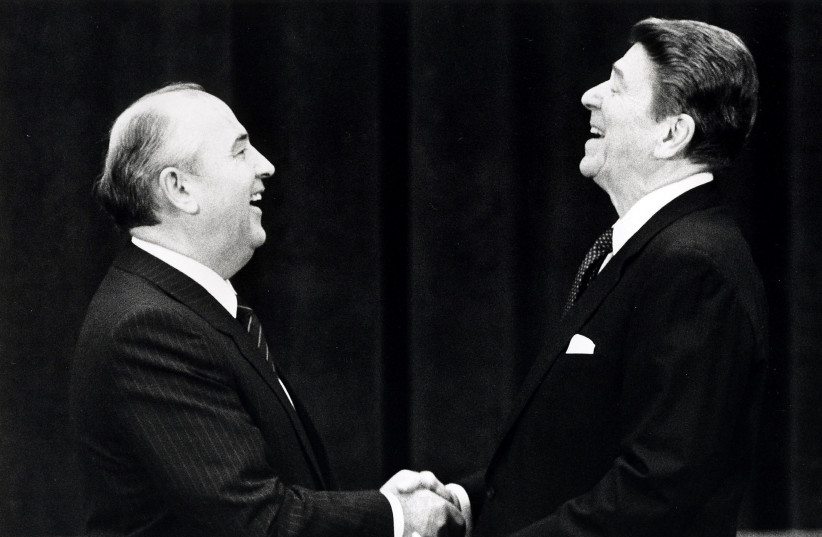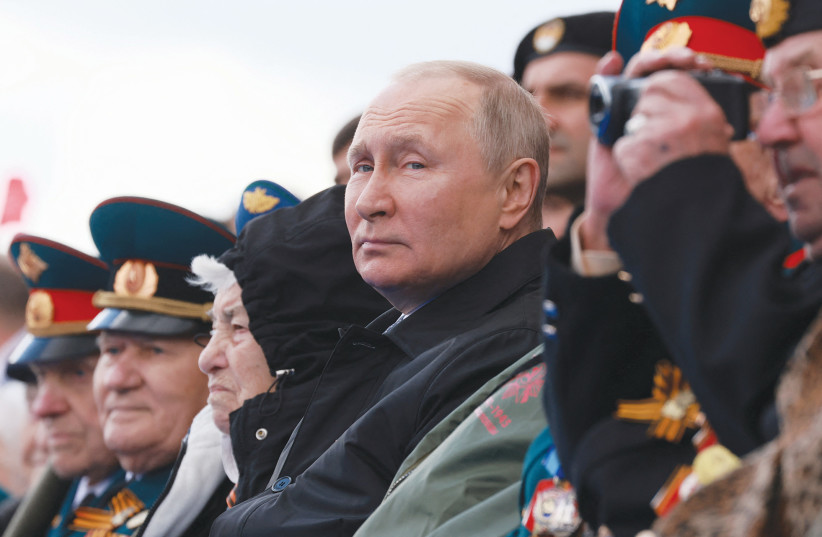A paper by Hebrew University researchers determined that the Kremlin’s food security policies have provided the dual benefit of shielding Russia from Western sanctions and providing political control over countries that import grain from the giant post-Soviet state – not just amid their invasion of Ukraine, but throughout Russian and Soviet history since 1917.
While Russia has been in the headlines for its politicization of food supply – specifically grain exports, Russia and Ukraine being two of the globe’s largest exporters – the Russian emphasis on food security as a domestic and international tool is not a novel concept.
The paper, published in the Journal of Democracy in July, outlined how many major developments in Russian and Soviet history since the 1917 revolution have either been driven by or closely associated with the availability – or lack – of food.
In February 1917, bread shortages, skyrocketing food prices, and subsequent food riots in the capital city of Petrograd sparked rebellion that led to the Russian Revolution and ended the monarchy. By the summer, however, food was once again scarce – leading to the Bolshevik Revolution that October.
While food scarcity gave rise to the USSR and communist rule, it may have also been partially responsible for their downfall: The Soviet Union issued a 29-year moratorium on food price increases in 1962 after food price protests, which led to a stark rise in grain imports. After the USSR invaded Afghanistan in 1979, the United States – Russia’s primary source of grain at the time – declared a grain embargo on the Soviet Union. President Mikhail Gorbachev’s plans to “revitalize communism” in the 1980s led to food rationing and bread lines.

After the fall of the Soviet Union in 1991, stores throughout Russia lacked essential products, causing the government to fear widespread famine and state collapse. Food imports filled these gaps – though they came at the expense of sustainable domestic food production.
Putin – a student of history
Russian President Vladimir Putin has been acutely aware of the importance of food security and domestic food production since before his ascension to the presidency in 2000. As the vice-mayor of St. Petersburg in 1992, Putin emerged as the key figure in a massive government initiative to increase food supply. But the initiative failed and was abused by corrupt officials and businesspeople.
When Putin became president in 2000, he sought to bring his then-failed food security policies back on a national scale. Minister of Agriculture Aleksei Gordeev, who served from 1999–2009, was appointed to oversee this effort.
Gordeev argued that depending on food imports was too expensive for millions of impoverished Russians and made the country dependent on – and therefore vulnerable to – Western food supplies.
Putin and Gordeev moved to promote and regulate agricultural markets in Russia. Russia’s business community was supportive of the effort to increase domestic supplies, while Russia’s newly-rediscovered food independence served Putin’s political goals of increasing state capacity and strengthening Russia’s sovereignty and independence from the West.
Russia’s approach specifically targeted the grain industry: offering financing, infrastructure, land ownership reform, and more to farmers and producers. From 2000 to 2018, Russia transitioned from being a net-importing country to becoming one of the world’s leading food exporters – a success story that led to Russia’s 2010 official “food independence doctrine.”
Russia’s food security decree, which explicitly made food a key national-security concern, was produced by its Security Council, signed by the country’s president Dmitry Medvedev, and assigned the elevated status of a “doctrine,” one of only seven that the Russian Federation currently has.
Food security as a weapon
After Russia annexed parts of Crimea in 2014, they became the target of sanctions from Western powers. Due to Russia’s previous food security reforms, not only were food supplies now safe from potential sanctions, but Putin’s “counter-sanctions” against food imports shielded Russian food producers from foreign competition – thereby creating a cycle of ever-increasing domestic food independence.

The push to secure food production domestically has served Russia very well over the last few years, as unprecedented challenges brought upon by the COVID-19 pandemic in 2020 did not drastically affect Russia’s food supply – nor have sanctions related to its 2022 invasion of Ukraine.
Contrary to their previous issues after the 1979 sanctions, Russia has been able to threaten nations it deems “unfriendly” to the Russian government with a halt on food or energy exports.
“Thank you, Europeans, for sanctions in the agricultural sphere… we introduced responsive measures related to agriculture, invested appropriate resources… not only in agriculture but also in industry’s so-called import substitution,” Putin said in a 2021 event. "And, I have to say, the effect is good."
Food security or isolation?
While Russia has used food security as a tool to sustain the country – and a weapon against its detractors – Moscow has also dealt with shortages of fertilizers and crucial ingredients, as well as food price spikes so far this year.
Russia may continue to look inward in its quest for food independence, but inferior domestic alternatives might endanger Putin’s food-independence project precisely when it is needed most. While food security is currently a point of pride for the Russian regime, food prices have risen consistently since the COVID-19 pandemic and – if Russian history is any indication – may grow to become a threat to Putin’s rule.
